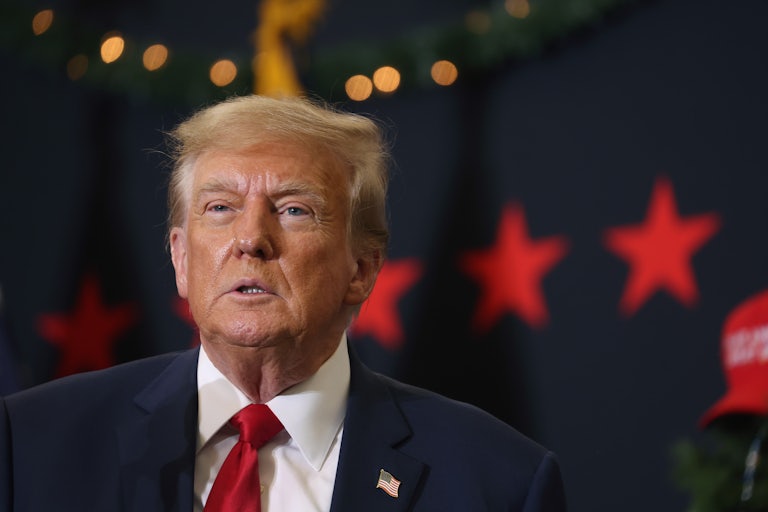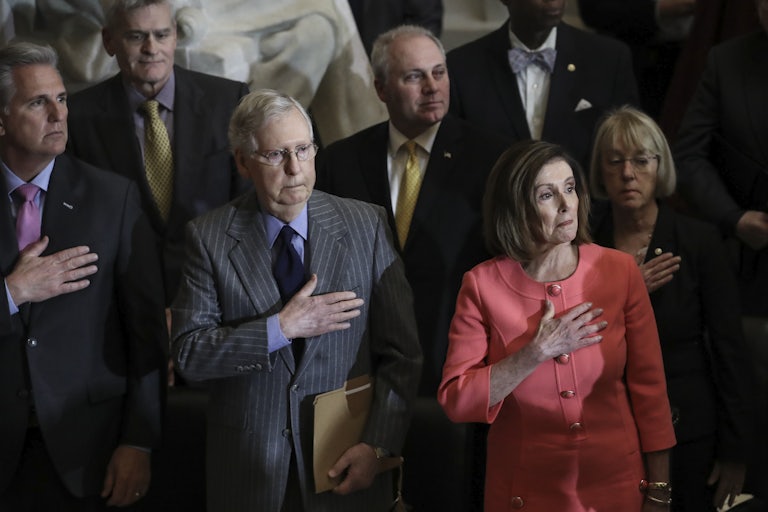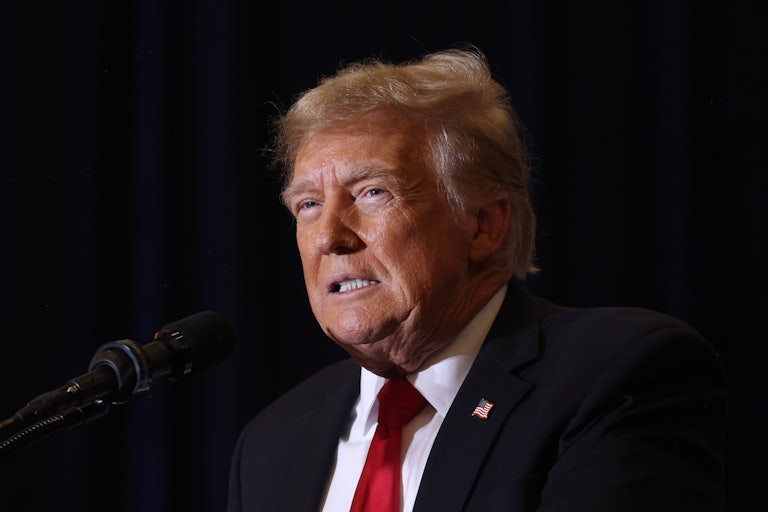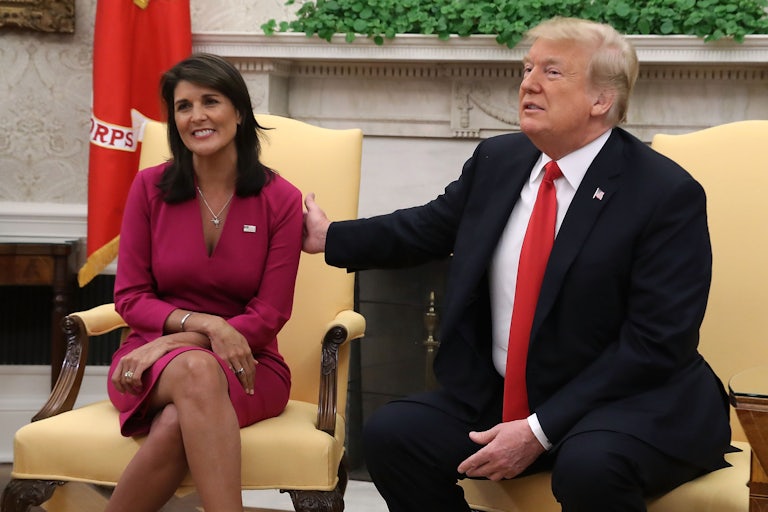Watch: Marjorie Taylor Greene Offers Pathetic Excuse for Stock Trading
A new report named the Georgia congresswoman as one of the top members of Congress to make a profit in the stock market.
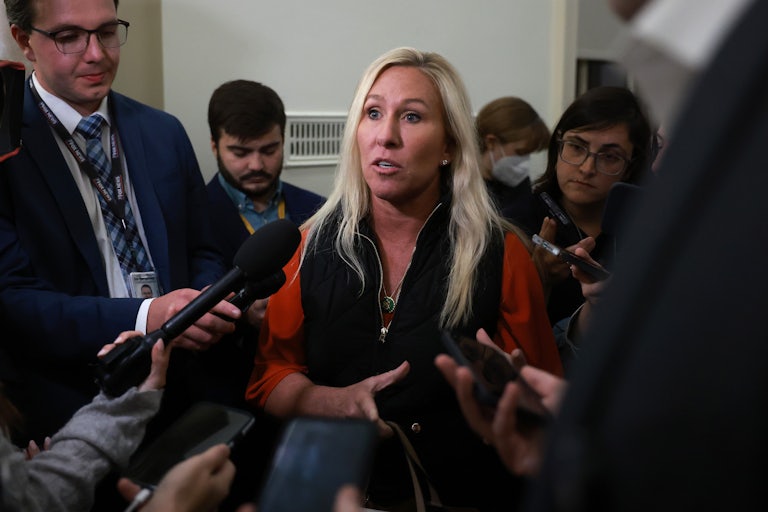
Representative Marjorie Taylor Greene pulled the old “I’m holding it for a friend” excuse when prompted to explain why she was listed among members of Congress with suspiciously high-performing stock portfolios.
On Tuesday, the market analysis watchdog Unusual Whales dropped its annual review of the biggest market traders on Capitol Hill. Democrat lawmakers’ outpaced Republicans’ gains in no small part due to Representative Brian Higgins’s portfolio, which outperformed the S&P 500 Index by nearly 10 times. But quite a few Republicans also made it to the list, including none other than Taylor Greene.
When questioned about appearing on the list, however, Greene pointed a finger at her son.
“I asked my team about that today, about why my name was on the list because I don’t even own any stocks, and I haven’t all of 2023,” Greene said on Fox News’s Jesse Waters Primetime.
“As a matter of fact we have to report everything, including children who are dependents of ours, and I think what was reported was actually related to my son’s account that his father and I had set up for him years ago,” Greene added.
Greene: I actually asked my team about that today why my name was on the list because I don't even own stocks. And I haven't all of 2023… pic.twitter.com/bEVsskyRNW
— Acyn (@Acyn) January 3, 2024
To Greene’s credit, Unusual Whales doesn’t list any new transactions out of Greene’s portfolio for the duration of 2023, though the MAGA politician has made more than a handful of purchases since she took office in 2021 and doesn’t seem to have sold them. That probably explains why she’s ranked on the list, which measures overall returns for the year—not transactions.
But all these gross expenditures and unusually timed trades begs the question: How are our politicians making such informed choices?
Technically, it’s illegal for lawmakers to buy and sell stock based on nonpublic information. In 2012, President Barack Obama signed the STOCK Act, preventing members of Congress from trading based on details obtained through their work, like committee work or entertaining lobbyists.
But as long as a trade is reported in 45 days, U.S. legislators are free to trade however they want, even if the bills they pass or reject could influence a company’s performance and help them line their own pockets.


